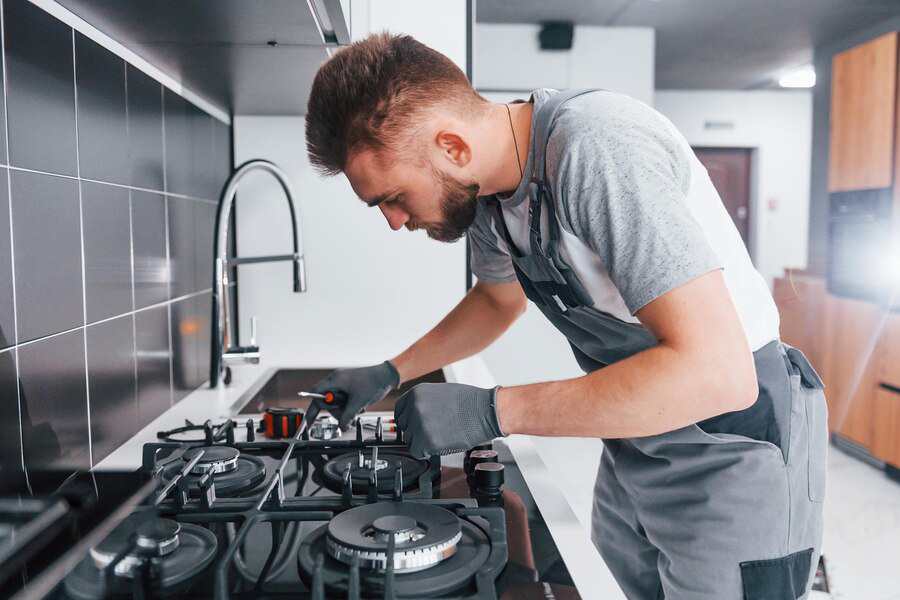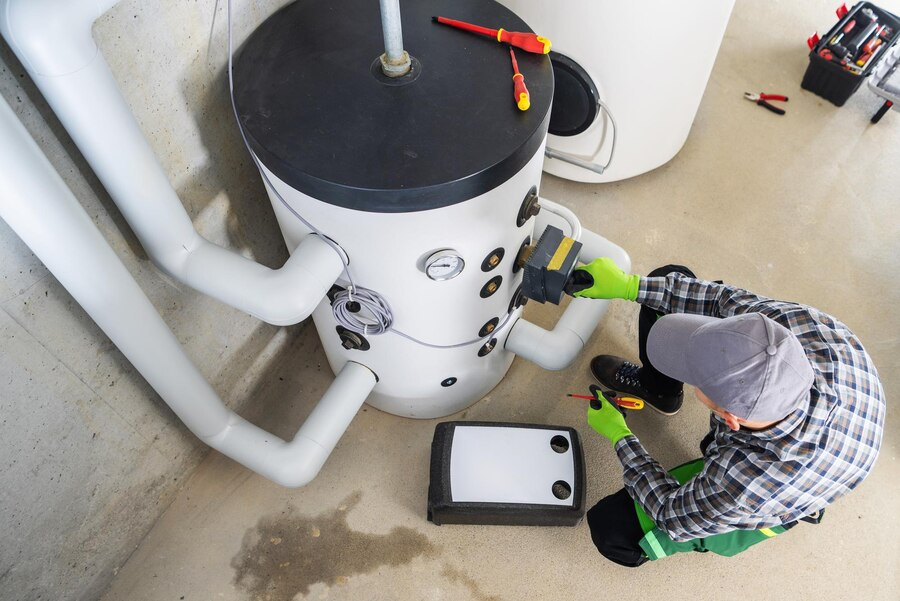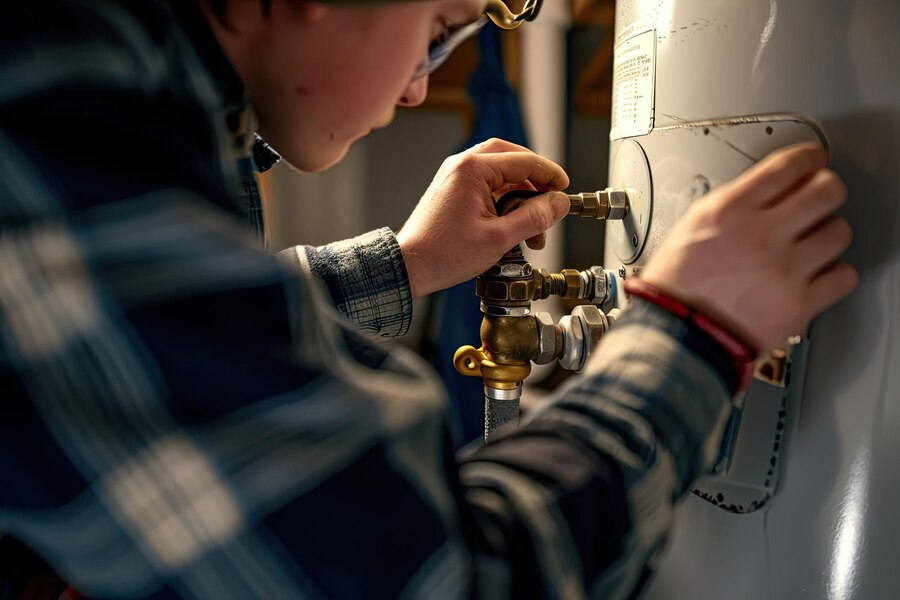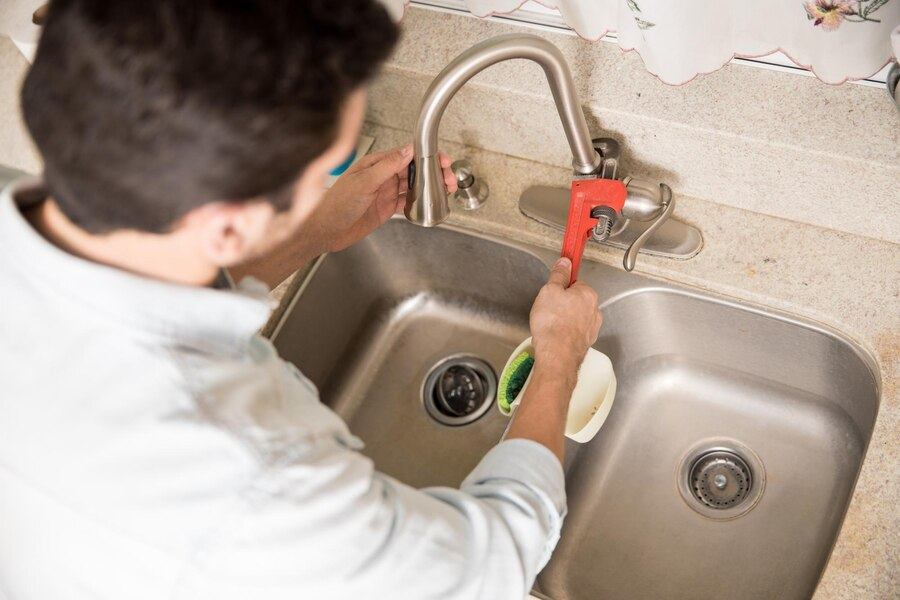Essential Guide to Gas Appliance Safety and Maintenance
Keep your home safe and efficient with expert tips and maintenance advice for gas appliances.
In modern homes, gas appliances play a crucial role in providing heat, cooking food, and even
heating water. From stoves to water heaters, these appliances are relied upon daily. However, with this convenience comes the responsibility of ensuring their safe operation and regular maintenance. Gas appliances, when properly maintained, are efficient and safe. Yet, neglecting maintenance or ignoring safety protocols can lead to serious hazards such as gas leaks, carbon monoxide poisoning, or even fires. This guide delves into essential practices for maintaining gas appliances to ensure both safety and efficiency.
Understanding Gas Appliances
Gas appliances are indispensable in modern households, relying on natural gas or propane to power essential functions. These appliances encompass a wide range, from cooking and heating water with gas stoves and water heaters to providing warmth through furnaces and drying clothes with gas dryers. Their appeal lies in efficient heating and cost-effectiveness, often outperforming electric counterparts in speed and cost savings.
However, unlike electric appliances, gas models demand meticulous attention to ventilation and maintenance for safe operation. Proper ventilation ensures the safe release of combustion by-products like carbon monoxide, while regular maintenance checks safeguard against potential leaks or malfunctions. This dual emphasis on ventilation and maintenance is crucial for homeowners looking to enjoy the benefits of gas appliances while prioritizing safety and efficiency in their homes.
Importance of Regular Maintenance
Regular maintenance of gas appliances is not just beneficial but essential for ensuring optimal performance and safety within your home. By prioritizing regular maintenance, you not only enhance the efficiency of your gas appliances, leading to potential savings on energy costs, but also extend their lifespan significantly. Moreover, scheduled maintenance allows for early detection and resolution of any potential issues that may arise. This proactive approach helps prevent minor problems from escalating into major and costly repairs or even necessitating premature replacements of expensive appliances.
Beyond financial considerations, regular inspections by qualified professionals are critical for identifying and mitigating safety hazards. These can range from gas leaks, which pose immediate risks of fire or explosion, to issues with ventilation that could lead to the buildup of harmful gases like carbon monoxide. By investing in regular maintenance, homeowners prioritize the safety and well-being of their household members, ensuring peace of mind while enjoying the benefits of efficient and reliable gas appliances.

Importance of Regular Maintenance
Regular maintenance of gas appliances is not just beneficial but essential for ensuring optimal performance and safety within your home. By prioritizing regular maintenance, you not only enhance the efficiency of your gas appliances, leading to potential savings on energy costs, but also extend their lifespan significantly. Moreover, scheduled maintenance allows for early detection and resolution of any potential issues that may arise. This proactive approach helps prevent minor problems from escalating into major and costly repairs or even necessitating premature replacements of expensive appliances.
Beyond financial considerations, regular inspections by qualified professionals are critical for identifying and mitigating safety hazards. These can range from gas leaks, which pose immediate risks of fire or explosion, to issues with ventilation that could lead to the buildup of harmful gases like carbon monoxide. By investing in regular maintenance, homeowners prioritize the safety and well-being of their household members, ensuring peace of mind while enjoying the benefits of efficient and reliable gas appliances.
Signs of Gas Appliance Problems
Identifying potential issues with gas appliances early can prevent dangerous situations. Some common signs that may indicate a problem include:
Yellow or Flickering Flames
Gas appliances typically exhibit a steady blue flame when functioning properly. A yellow or flickering flame suggests incomplete combustion, which can release carbon monoxide. This issue requires immediate attention to prevent potential health hazards and ensure efficient appliance operation.
Unusual Odors
While natural gas itself is odorless, utility companies add a distinctive odor (often described as resembling rotten eggs) to aid in leak detection. If you detect this odor or suspect a gas leak, it's crucial to act promptly. Gas leaks pose serious risks of fire or explosion, necessitating immediate evacuation and notification of the gas utility provider.
Soot or Scorched Marks
Excessive soot accumulation around burners or scorched areas near gas appliances indicates incomplete combustion. This can lead to the production of carbon monoxide, a colorless and odorless gas that poses significant health risks. Additionally, soot or scorched marks may indicate potential fire hazards, emphasizing the need for professional inspection and maintenance.
Increased Utility Bills
A sudden rise in gas usage without a corresponding change in appliance usage patterns could indicate inefficiency or malfunction within gas appliances. This increase may result from issues such as leaks, improper combustion, or worn-out components. Addressing these issues promptly through professional maintenance can help restore efficiency and prevent further financial costs.
Gas Appliance Safety Tips
Ensuring the safety of gas appliances involves a combination of proper installation, regular maintenance, and vigilant usage. Here are some essential safety tips:
Professional Installation
Hiring qualified professionals ensures gas appliances are installed correctly, following local safety codes and manufacturer specifications. This reduces the risk of gas leaks, improper ventilation, or other hazards that could compromise safety and appliance efficiency.
Ventilation
Proper ventilation is crucial to safely exhaust combustion by-products like carbon monoxide. Regularly inspect and maintain vents to ensure they remain clear of obstructions, allowing gases to dissipate safely outdoors and preventing potential health risks indoors.
Carbon Monoxide Detectors
Install carbon monoxide detectors near sleeping areas and on each floor of your home, following manufacturer guidelines. Test them monthly to ensure they are functioning properly and replace batteries as needed. These detectors provide early warning of carbon monoxide buildup, protecting your household from this silent and deadly gas.
Annual Inspections
Schedule annual inspections by certified technicians to thoroughly check gas appliances. They will inspect for leaks, ensure proper combustion, and assess overall appliance condition. This proactive approach helps identify and address potential safety issues early, ensuring continued safe operation and efficiency.
Read the Manual
Manufacturer instructions provide essential guidance for the safe operation, maintenance, and troubleshooting of gas appliances. Understanding and following these guidelines ensures appliances function properly, reducing the risk of malfunctions or safety hazards due to incorrect operation or neglect.
Maintenance Checklist
Regular maintenance of gas appliances can be performed by homeowners but should include professional inspections annually. Here's a checklist for routine maintenance:
- Clean Burners and Ports: Regularly clean burners and ports to remove dirt and debris, ensuring efficient combustion and preventing potential blockages that could affect appliance performance.
- Check Ventilation: Inspect vents periodically to ensure they are clear and free from obstructions, allowing proper airflow for safe combustion and exhaust of gases like carbon monoxide.
- Inspect Gas Lines: Test for gas leaks by applying a soapy water solution to connections and valves. Bubbles indicate leaks that require immediate attention to prevent safety hazards
- Test Pilot Lights: Verify pilot lights are consistently lit and burn blue for appliances requiring them. A yellow or orange flame signals incomplete combustion, indicating a potential issue that needs addressing.
- Inspect Exhaust Flues: Check exhaust flues for any blockages or signs of wear that could impede proper venting of combustion by-products. Clearing obstructions ensures gases exit safely outdoors, preventing indoor air quality issues.
- Replace Filters: If applicable, follow manufacturer recommendations to replace filters in appliances like furnaces or dryers. Clean filters ensure optimal performance and efficiency, reducing strain on the appliance and lowering energy costs.
Emergency Preparedness
Despite precautions, emergencies can still occur. It's essential to have a plan in place:
Know the Signs
Educate household members about the signs of gas leaks, such as the smell of rotten eggs or hissing sounds, and symptoms of carbon monoxide poisoning like headaches, nausea, or dizziness. Prompt recognition is crucial for swift action.
Evacuation Plan
Develop and practice a clear evacuation plan tailored for gas leaks or carbon monoxide emergencies. Ensure everyone knows primary and alternate escape routes from each room and designate a meeting point outside the home.
Emergency Contacts
Keep emergency contact information for local fire departments, gas utility providers, and poison control readily accessible. Post these numbers prominently and ensure everyone in the household knows how to access them quickly in an emergency.
Shut-off Valves
Identify the location of gas shut-off valves in your home and learn how to turn them off safely. Regularly inspect valves for accessibility and functionality. Knowing this crucial step can prevent further gas leaks and mitigate potential hazards during emergencies.
Conclusion
In ensuring the safety and efficiency of gas appliances, vigilance and regular maintenance are paramount. Proper upkeep not only extends the lifespan of your appliances but also safeguards against potential hazards. For residents in Northampton, UK, understanding these principles is crucial. By prioritizing professional gas appliance services, such as those provided by Plumbing & Heating. Gas Engineer Northampton, you ensure peace of mind and compliance with safety standards. Invest in maintenance today to secure a safer tomorrow for your home.



